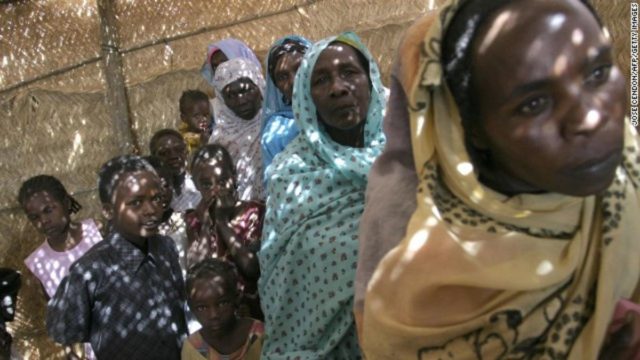It’s 2020 and the demand for equal rights for both men and women is at an all-time high. Feminism is picking up pace and oppression of women is openly being called out.
However, in a parallel world, Sudanese culture has been prevalently following the practice of Female Genital Mutilation (FGM). 9 out of 10 women in Sudan are a victim of this bizarre practice. The most surprising part about this culture is that it has been socially acceptable and encouraged for a long time until now.

The good news is that after years of protests and campaigns held by both men and women worldwide, the Sudan government has finally decided to outlaw this evil practice of pain and torture.
What Is It All About?
Female Genital Mutilation is a highly prevalent practice in Sudan which is called infibulation, or ‘pharaonic circumcision’ in scientific terms. Under this process, all or some parts of the inner and outer labia, and usually the clitoris, are removed. What makes this practice even worse is the reason behind the same.
According to Sudanese culture, FGM is acceptable as it curbs down female sexual desire promoting traditional beliefs and reinforcing conservative behaviour.
A report released by the United Nations in 2014 stated that “87% of Sudanese women and girls between the ages of 15 and 49 have been subjected to the procedure”. FGM is usually implemented during the young age between 5-14 years that ensures mutilating the genitals will result in loss of sexual desire among young girls and prevent adultery.
What Does The Government Say?
Understanding the evil nature of this practice, there have been protests going on worldwide against the same. Even the United Nations stepped forward and condemned the act. But, the Sudanese have been reluctant about liberalism and believe that discarding FGM will be a threat to their culture.
According to previous reports, Sudan did introduce legislation against FGM in 1946 but it was brutally ignored as people did not think of it as a criminal act. Things got even worse after the introduction of Sharia Law in 1983, and all attempts to criminalize the act have been failing ever since then until now.
Also Read: Is Saudi Arabia Becoming Feministic With New Laws For Women’s Rights?
The government made changes to its legislation recently and has announced that the practice of Female Genital Mutilation will be considered as a criminal offence from 1st May 2020.
A New Era Of Women Right’s Uprising
The Sudan government introduced the new law on 30th April 2020, which clearly stated outlawing the practice of FGM. Anyone found guilty of the crime will be sent to jail for three years and will be a criminal in the eyes of the State.
The new law will be ratified soon and once official, it will be a victory for the women of Sudan who have been subjected to this oppression for more than 100 years.
The interim government which proposed the law consists of four female ministers who have a major contribution in criminalizing the culturally acclaimed practice. The United Nations also welcomed the reform and appraised the wave of change.
However, it is speculated that even after outlawing the practice, it is a tough challenge for authorities to eradicate it. The right groups say that the practice remains deeply enrooted in the conservative society and that enforcement could face obstacles.
We hope that the authorities come up with a full-fledged plan to ensure a permanent stop on such customs taking one step forward towards the much-needed empowerment in the region.
Image Credits: Google Images
Sources: New York Times, BBC News, The Guardian
Find the Blogger: @ZehraYameena
This post is tagged under: female genital mutilation, Sudan government ban, criminalising, jail, United Nations, old practice, conservative, Sharia Law, banned
Other Recommendations:
4500 Young Women Have Got Their Wombs Removed As It’s Seen As A Hurdle To Income In This District